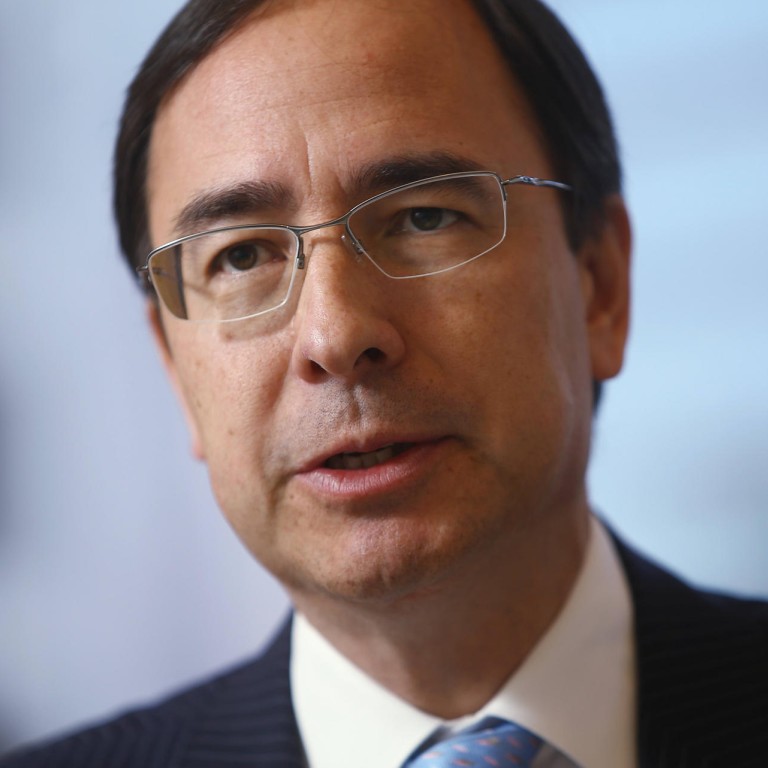
Myanmar military should accept Aung San Suu Kyi has mandate for reform, says her legal adviser
The party led by Aung San Suu Kyi is determined to make amendments to Myanmar's constitution, including the "unacceptable" and "unfair" provision that bars her from becoming the president, her senior adviser on legal affairs has said.
The party led by Aung San Suu Kyi is determined to make amendments to Myanmar's constitution, including the "unacceptable" and "unfair" provision that bars her from becoming the president, her senior adviser on legal affairs has said.
Robert Pé, who has been advising the Nobel Peace Prize recipient for more than three years, said the military needed to understand that Suu Kyi's landslide election victory meant she had the mandate from the people to carry out constitutional reform.
"It is absolutely clear the National League for Democracy wants that provision, among a few others, to be significantly revised," Pé, who is based in Hong Kong, told the .
"If and when the time comes to embrace constitutional reform, when the military is willing to embrace it as well, then [that provision] will be one of the provisions that I would expect to be looked at very closely and I would expect to be greatly revised."
Suu Kyi lived under house arrest for 15 years until 2010.
In the country's parliamentary election earlier this month, her party secured a landslide victory, giving it a majority in the parliament and the right to choose a new president early next year.
The problem is that she is barred from becoming president under the constitution because her late husband was a foreigner and her two sons hold British passports. She believed that the provision was written into the constitution to block her.
But that would not stop her from running the government, as she said soon after the election that she would be "above the president", and the president "will be told exactly what he can do". Critics said Suu Kyi was trying to put herself above the law.
"All I think she is talking about is a way of managing the government effectively, given the constraint imposed on her. It is very clear that she has a strong mandate," Pé said.
He added that Suu Kyi was trying to "achieve a means of fulfilling that mandate".
But pushing for constitutional amendments will be no easy task.
A quarter of the seats in the parliament are reserved for the military. Any amendments need more than 75 per cent support, meaning that any move to take away power from the military will need its support.
"The constitution is about the people. You cannot ignore completely the will of the people. For that reason, I hope and I am also optimistic that the military will become amenable to amendments to constitution," Pé said.
Another obstacle Suu Kyi is expected to face is that the military still has control over three key ministries - defence, home affairs and border affairs.
"While the military remain in control over the three ministries, I think they need to exercise that control carefully, taking into account the very clear and strong mandate the NLD has obtained from the people," he said.
Suu Kyi has been criticised for her silence on the Rohingya ethnic minority, who have been denied citizenship rights and confined to bleak villages and camps.
Even after the election, party spokesman U Win Htein said "we have other priorities" when asked about the Rohingya.
On this issue, Pé said: "It comes back to [Suu Kyi's] emphasis on national reconciliation on every level."
He added that reconciliation was not just about the military, but the ethnic minorities as well.
Another area of concern is that, under the constitution, the president selects and appoints the chief justice. The two of them then select and appoint the Supreme Court judges.
"In the context where independence of the judiciary has been completely destroyed over five decades [of military rule], it is unhelpful for that to be reinforced by this provision of the constitution, which essentially allows the president to control who will be the highest judges," he added.

